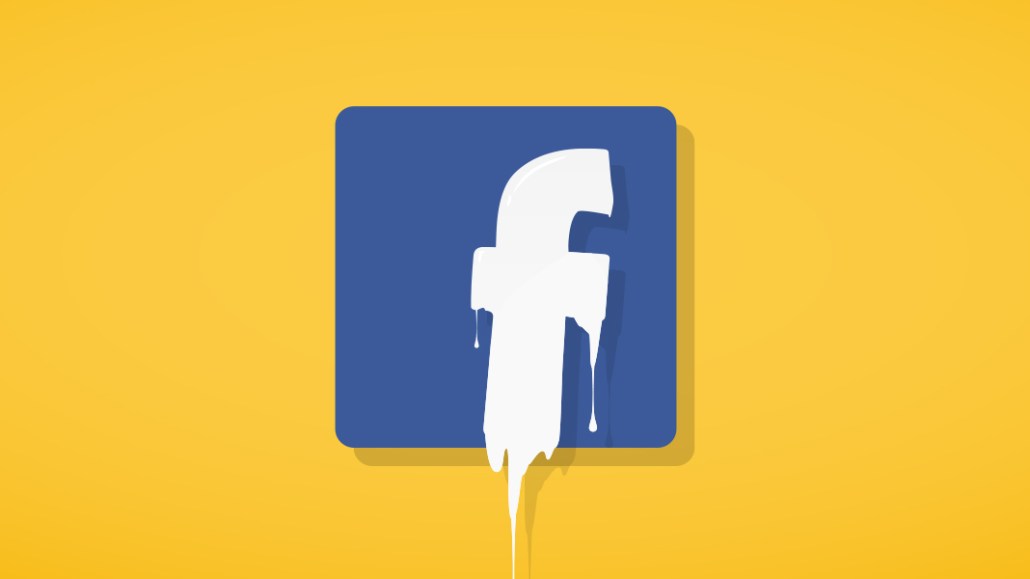Save 50% on a 3-month Digiday+ membership. Ends Dec 5.
‘Are you going to put people over profit?’: As Facebook boycott continues, DTCs still running ads on the platform in a tricky spot

This Future of Marketing Briefing covers the latest in marketing for Digiday+ members and is distributed over email every Friday at 10 a.m. ET. More from the series →
Ask anyone who works with direct-to-consumer brands about the Facebook boycott and you’ll likely hear about how DTCs are being put in a difficult position. Dependent on Facebook and Instagram ads to drive site traffic which in turn drives revenue, DTCs are unable to participate in the boycott the same way that Unilever and Coca-Cola can, even as their values align with it.
Per agency execs and industry observers, part of the problem is that DTCs use Facebook ads differently than legacy brands. While that class of marketer use them to boost brand awareness, their revenue isn’t as directly tied to the platform. Even without those ads, people will still see and purchase Unilever and Coca-Cola products on shelves at retailers. However, if DTCs turn off Facebook and Instagram ads, which are often direct response ads meant to acquire customers rather than increase brand awareness, they’ll cut lines to many of their customers and hurt their bottom line.
As Modern Retail editor Cale Guthrie Weissman wrote last week, that’s an especially tricky situation for DTC brands that have touted their progressive values — be it an ethical supply chain or sustainability or dismantling beauty standards — as part of their differentiation. Some of those DTCs are indeed fearful of being called out for continuing running ads on Facebook amid the boycott.
“The main thing smaller brands seem concerned about is will [there be] any kind of backlash against advertisers continuing to run on the platform,” said one buyer who mainly works with DTC brands. “[That] would be unfair to them as their businesses and staff are often heavily reliant on the revenue that [Facebook] generates.”
That said, the Facebook boycott is part of a larger cultural shift towards a more “values-based consumerism,” as Village Marketing founder Vickie Segar put it, that has been going on for some time and likely why DTCs companies felt the need to pitched their values as part of their differentiation.
“People are asking companies to show their values: Are you going to put people over profit? Companies need to get used to making decisions [that support their] values over profit,” said Segar, adding that those that don’t may be called out and “lose profit anyway if they don’t,” as people may not want to support brands that state their values but not stay true to them.
While this is part of a larger cultural shift, agency execs say that DTCs may have to figure out ways to participate in the boycott or to tweak their advertising strategies while the boycott is on-going. The difficulty of doing so will depend on the DTC brand and the strategy they adapt.
Ad position: web_incontent_pos1
“Established DTC brands with a business model that is set up for revenue from returning customers (Glossier, Hims) are in a better position [to participate] than those who rely almost exclusively on customer acquisition for growth (Casper, Peloton),” said Katy Wellhousen, senior account director at RQ. Previously Wellhousen was a marketing and growth consultant for DTC startups. “The Glossiers of the world can join the boycott and push harder on levers that target customers whose data they already have,” she said.
One strategy for more established DTCs, added Wellhousen, would be “putting more attention on email marketing, referrals and building relationships with influential customers that are natural ambassadors of the brand.”
Additionally, per Segar, DTCs could be taking ad dollars meant for direct ads on Facebook or Instagram and put them towards influencers. While influencer deals have taken a hit as some marketers don’t want to have sponsored content post during boycott, others see it as a viable option for DTCs unable to totally sit out advertising on Facebook.
“[Influencers can help] DTC brands still reach the right audiences while pausing their spend on Facebook, giving them an opportunity to use their ad dollars to pressure Facebook into policy changes,” said Wellhousen, adding that “this is especially important for those who have put out statements supporting the Black Lives Matter movement. How can a brand authentically join the fight against racial injustice when they’re using the same platform that allows hate speech to sell moisturizer, vitamins and tennis shoes?”
Figuring out how to square public values and where ad dollars go will likely continue long past this boycott. For DTCs, it could continue to be a tricky road to navigate.
Ad position: web_incontent_pos2
“With values-based consumerism there isn’t room for error,” said Segar. “People will knock you down if you don’t stick with what you’re saying.”
More in Marketing

Ulta, Best Buy and Adidas dominate AI holiday shopping mentions
The brands that are seeing the biggest boost from this shift in consumer behavior are some of the biggest retailers.

U.K. retailer Boots leads brand efforts to invest in ad creative’s data layer
For media dollars to make an impact, brands need ad creative that actually hits. More CMOs are investing in pre- and post-flight measurement.
Ad position: web_bfu



